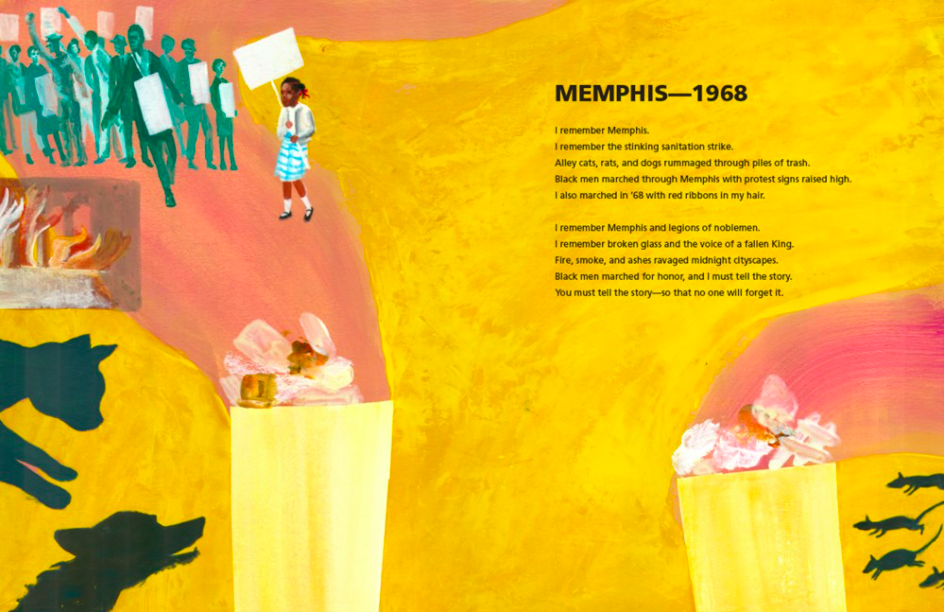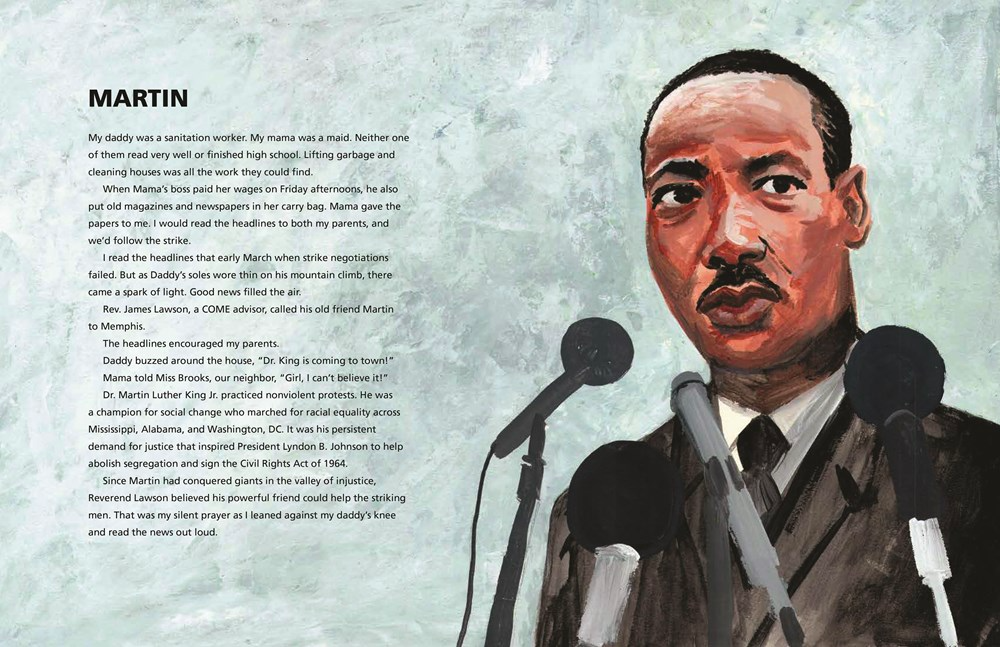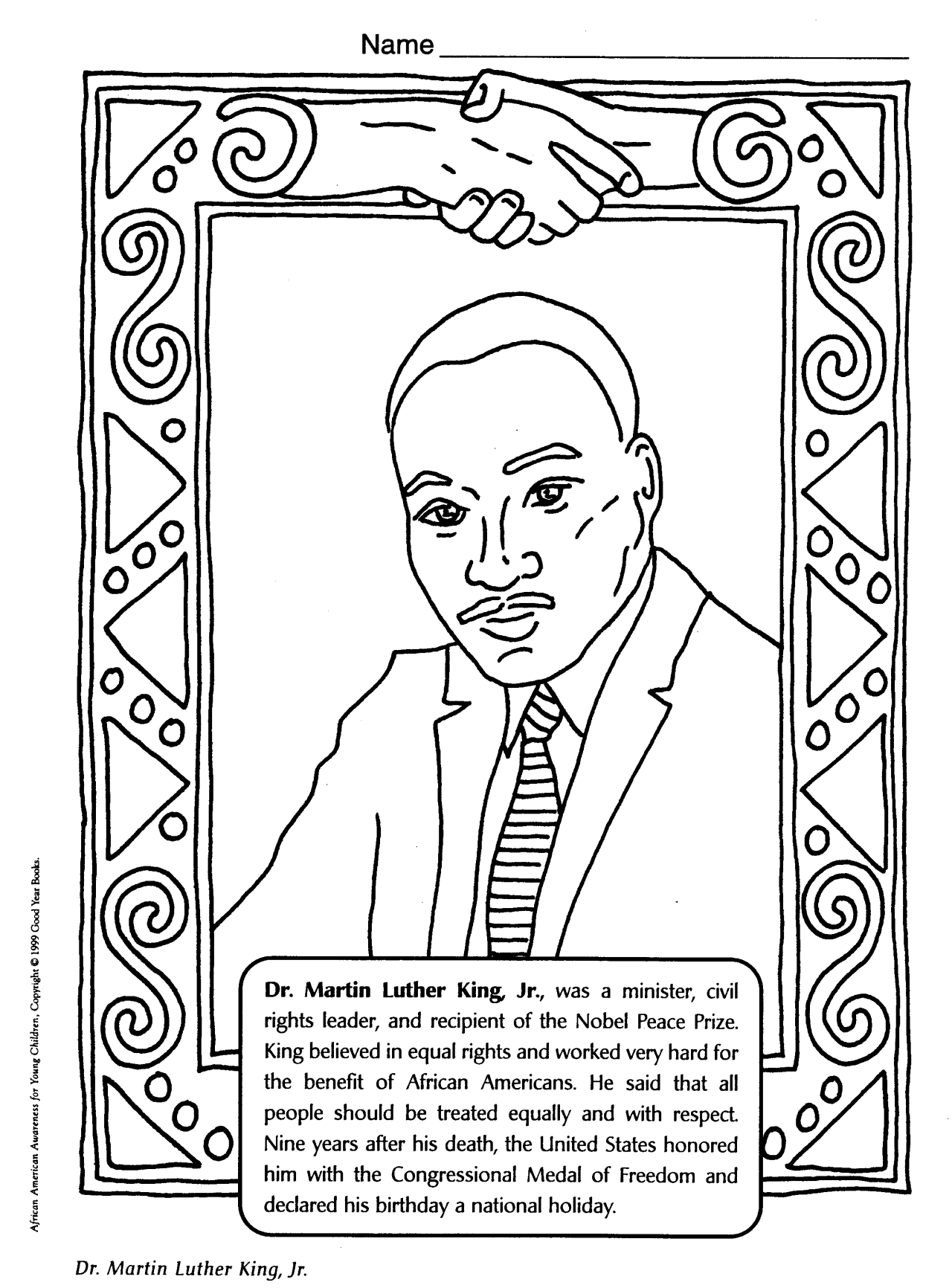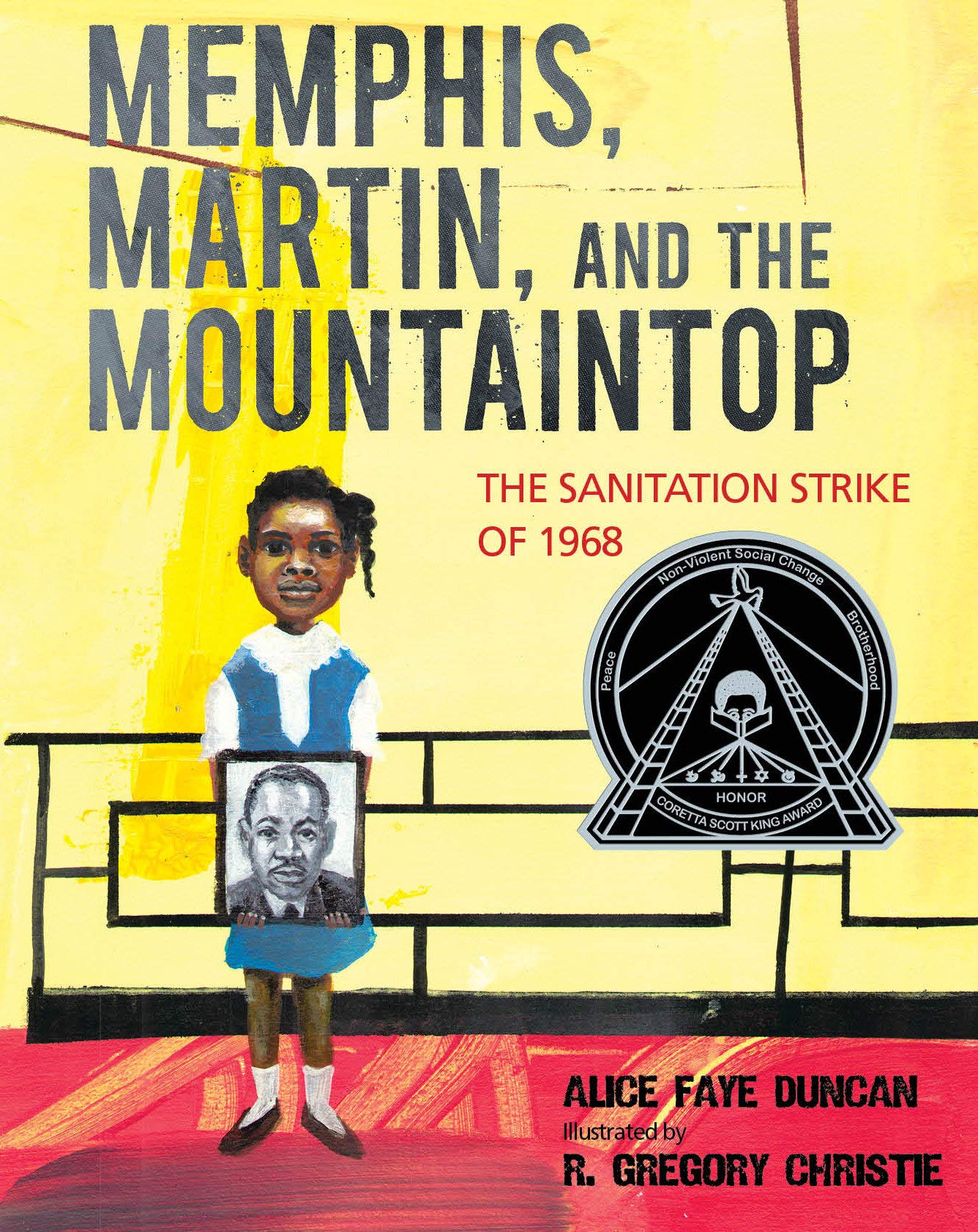About the Holiday
This month we honor the life and legacy of Martin Luther King Jr. as we commemorate his assassination on April 4, 1968. Today’s book, told in lyrical language along with interwoven poems, relates the events of the Memphis Sanitation Strike of 1968 as well as the day of Dr. King’s death and touches on two holidays held today: Great Poetry Reading Day and National Workers Memorial Day.
Great Poetry Reading Day
As National Poetry Month comes to a close, people are encouraged to engage in one more special celebration of poets and their work by reading and sharing poems by their favorite writers as well as discovering new writers whose work they can enjoy today and in the future. To get started why not visit your local library or bookstore and take home a book or two of poetry for you and your kids today as well as today’s superb book.
Workers Memorial Day
Some jobs are so dangerous that workers get hurt or even die doing them. Around the world organizations have been established to help industries provide safer working environments for their employees by establishing standard rules and regulations for buildings, machinery, working hours, and more. Unions and other groups have also been founded that represent workers to ensure their rights are upheld and their needs are met. Today we honor the sacrifices of workers in dangerous professions and raise awareness for safe working conditions.
I’d like to sincerely thank Alice Faye Duncan for sharing a digital copy of Memphis, Martin, and the Mountaintop for review consideration. All opinions on the book are my own.
Memphis, Martin, and the Mountaintop: The Sanitation Strike of 1968
Written by Alice Faye Duncan | Illustrated by R. Gregory Christie
Informed by the memories of Dr. Almella Starks-Umoja, a teacher who as a child participated in the sanitation strike and told through the eyes of fictional nine-year-old Lorraine, Alice Faye Duncan relates the story of the 1968 sanitation strike in Memphis, Tennessee and the assassination of Dr. Martin Luther King just a day after giving his final sermon “I’ve Been to the Mountaintop” at Mason Temple Church in support of the strike.
Through thirteen titled vignettes composed of lyrical and powerful language, Duncan reveals the detailed facts and emotions of those days that changed lives, altered the Civil Rights movement, and still resonate today. Duncan begins with “Memphis—1968” in which Lorraine describes a Memphis roiled by “the stinking sanitation strike” when “Black men marched for honor” and she also marched “with red ribbon in [her] hair.” She entreats the reader: “You must tell the story—so that no one will forget it.”

Image copyright R. Gregory Christie, 2018, text copyright Alice Faye Duncan, 2018. Courtesy of Calkins Creek.
“Mud Puddles” tells of the moment in January when Lorraine’s father comes home so “distressed and out of breath” that Lorraine’s muddy shoeprints are forgotten by her mama as he tells them about his two fellow sanitation workers and friends—Echol Cole and Robert Walker—who were killed when a truck’s packer blade malfunctioned. “Daddy told Mama, ‘It ain’t right to die like that.’ / Mama shook her head, and I saw a new storm rising up. / I saw it in their eyes.”
In “Marching Orders” Lorraine lays out the ugly conditions sanitation workers like her father toiled under and introduces readers to Mayor Loeb, who refused to increase their wages from $1.70 an hour. She states, “When they could take the abuse no more, 1,300 men deserted their garbage barrels. They organized a labor strike on February 12, 1968. In the morning and afternoon, for sixty-five days, sanitation workers marched fourteen blocks through the streets of downtown Memphis.”

Image copyright R. Gregory Christie, 2018, text copyright Alice Faye Duncan, 2018. Courtesy of Calkins Creek.
As the strike continued through the winter, “[crippling] garbage collection with terrific success,” “Winter Blues” depicts the sacrifices Lorraine’s family made, from going without electricity to missing bill payments to skipping treats or getting anything new. But Lorraine also “learned what the grown folks knew. Trouble visits every life. But as strikers marched through sun and rain, help came in many forms.” Two of these were a group of Memphis preachers who helped strikers pay bills and the NAACP.
Winter turns to spring with no concessions from Mayor Loeb and no end to the strike in sight. But then in “Martin” Lorraine learns in the newspapers her mama’s boss gave her that Martin Luther King Jr. would be coming to support the striking workers. “Silver Rights” recounts Lorraine’s memories of listening to Dr. King, his voice “loud and stirring” when he said, “‘All labor has dignity.’” He set the date of March 22nd when he would march with the striking workers. Lorraine’s daddy and mama vowed to be there. And as she recalled, “then Mama patted my hand and said, ‘We will take Lorraine. She can march with us.’” A haiku “Omen” reveals the cancellation of the march.

Image copyright R. Gregory Christie, 2018, text copyright Alice Faye Duncan, 2018. Courtesy of Calkins Creek.
In “Beale Street,” Lorraine explains more about Dr. King’s dreams and work and his crusade he named “the ‘Poor People’s Campaign.’” The march was rescheduled for March 28, and on that day “Six thousand people—blacks, whites, men, women, and children—gathered in downtown Memphis. / Police stood guard with tear gas, billy clubs, and guns.” When looters shattered storefront windows, the police moved in, spraying tear gas and beating people.” Lorraine became separated from her mother but was swept to safety by her father. Following the riot, the National Guard was called in and a curfew put in place.
In the aftermath of the riot, Dr. King left Memphis, Lorraine tells readers in “Dreamers.” But he had promised to return despite death threats, and on April 3 he flew from his home in Atlanta to Memphis. It was a stormy night, but Lorraine and her family along with many others packed Mason Temple Church to hear Dr. King preach. But when they got there, Dr. King’s friend Ralph Abernathy told the crowd that Dr. King was too sick to appear.
Other people gave speeches about the strike, and Lorraine had fallen asleep in her mother’s arms when “KABOOM! A voice like the evening thunder shook me from my sleep.” In his booming voice, Dr. King “charged men, women, and children to make the world a promised land flowing with freedom and justice” and “encouraged Memphis strikers and strike supporters to march, boycott, and raise their voices for worker rights until victory was won.”

Image copyright R. Gregory Christie, 2018, text copyright Alice Faye Duncan, 2018. Courtesy of Calkins Creek.
In “Lorraine” the narrator reveals that her name is the same as the Memphis motel where Dr. King lost his life. She recounts his last hour spent with friends and the moment when he steps out onto the balcony and James Earl Ray shot him from a boarding house nearby. In other cities across the country grief-fueled protests broke out, but Memphis was relatively quiet. As Lorraine listened to the radio that night, she wrote a poem “The King is Dead” that her mama hung on the wall of their rented house.
“Black Widow” relates the events of April 8, when Coretta Scott King fulfilled her husband’s promise to march for the Memphis sanitation workers. Along with 40,000 other people—“ministers, labor leaders, political figures, entertainers, and everyday people”—from Memphis and around the country, Lorraine and her parents marched. In “Victory on a Blue Note,” the Memphis Sanitation Strike comes to an end when president Lyndon B. Johnson sent a labor official to negotiate a settlement. The men received a pay increase and promotions based on merit, not race. As Lorraine’s daddy and mama celebrate, Lorraine reveals what she has learned: “So much was won. / So much was lost. / Freedom is never free.”
An inspirational poem for all readers, “Mountaintop” closes the book. Back matter includes an extensive and detailed timeline as well as information on the National Civil Rights Museum at the Lorraine Motel and a list of sources.

Image copyright R. Gregory Christie, 2018, text copyright Alice Faye Duncan, 2018. Courtesy of Calkins Creek.
In Memphis, Martin, and the Mountaintop, Alice Faye Duncan’s use of a nine-year-old narrator makes her book even more powerful for today’s children in telling the story of the Memphis sanitation strike and the world-changing events surrounding it. Duncan intertwines conviction, pride, activism, and heartbreak together in her compelling and lyrical snapshots that reveal the facts and emotions behind this pivotal Civil Rights and economic rights protest for a living wage for all Americans. Children’s hearts will be filled with empathy for Lorraine as she supports her father, accepts the sacrifices her family must make during the strike, joins her mother in marches, and fears for the safety of the strikers and Martin Luther King Jr.
The life and work of Dr. King, his influence, and the hope he embodied as well as his shocking assassination are all encapsulated in Duncan’s concise paragraphs, allowing readers to understand his enduring inspiration to all who fight injustice. By overlaying the text with descriptions of the volatile weather experienced during the winter and spring of 1968, Duncan amplifies the fearful atmosphere of the times in a metaphorical way that will resonate with readers. Lorraine’s growth and insight gleaned from her experiences will stay with readers long after they read the story.
R. Gregory Christie’s dramatic collage-style gouache paintings set off Duncan’s vignettes with bold blocks of color while inviting readers to experience the determination, community, and dignity of the workers fighting for the universal desire for and right to recognition, safety, and a living wage. Christie’s illustrations are all the more evocative for their varied use of perspective, subtle glimpses of hope and support, and moving portraits of Lorraine’s father, strikers, Martin Luther King Jr., and Lorraine herself. The death of Dr. King is depicted in a tiny image of the Lorraine motel balcony on which three men pointing upward, a kneeling figure, and the fallen Dr. King are all portrayed in silhouette. The intense focus the reader puts on this image increases its effect on the heart and mind.
Compelling, moving, and inspirational, Memphis, Martin, and the Mountaintop: The Sanitation Strike of 1968 is a must-read for all children. The book is a first-rate choice for home libraries and belongs in every school and public library.
Ages 7 and up
Calkins Creek, 2018 | ISBN 978-1629797182
Discover more about Alice Faye Duncan and her books on her website.
To learn more about R. Gregory Christie, his books, and his art, visit his website.
Great Poetry Reading Day and Workers’ Memorial Day Activity

Martin Luther King Jr. Portrait
To inspire your dreams of a better future for all, color this printable page and hang it in your room!
Martin Luther King Jr. Portrait
You can find Memphis, Martin, and the Mountaintop: The Sanitation Strike of 1968 at these booksellers
Amazon | Barnes & Noble | Books-a-Million
To support your local independent bookstore, order from
Picture Book Review


